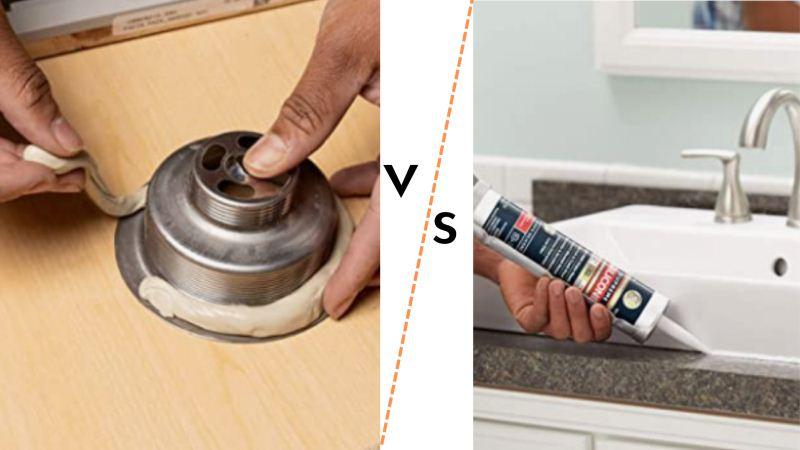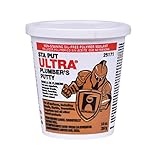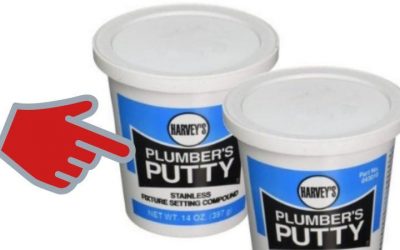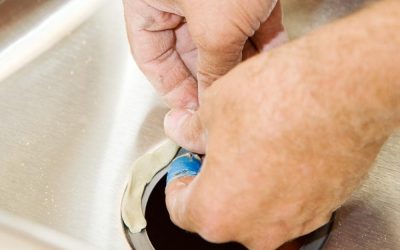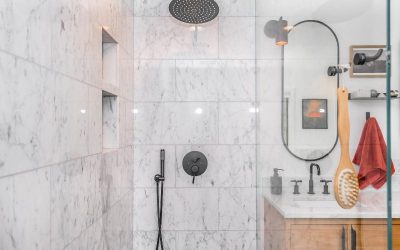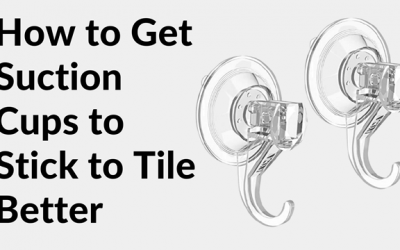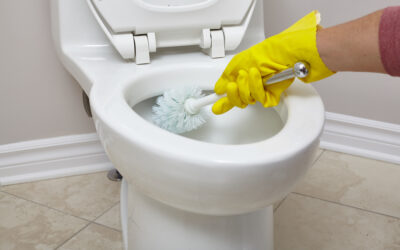What’s the best way to seal around a sink drain? Plumbers putty or silicone caulk?
It’s a question that plumbers get all the time and there are a lot of different opinions out there about what kind of sealant to use for a sink drain. Some people swear by plumbers putty, while others prefer silicone. So, which is the right choice for you?
In this article, we’ll break down the benefits and drawbacks of each sealant so that you can make an informed decision. We’ll also answer a few common questions that people ask regarding silicone and plumbers putty sealants.
Key Takeaways
The choice depends on the type of installation and personal preference. For sink drains, plumber’s putty is generally preferred for its ease of use and effectiveness in forming tight seals.
Is silicone and plumbers putty the same?
If you’ve ever done any plumbing work, you’ve probably used plumbers putty. But what is it, exactly? And is silicone the same thing?
Plumbers putty and silicone are both used to seal around plumbing fixtures, but they are not the same.
Silicone is often used as a sealant or caulking because it’s waterproof and can fill gaps effectively. It’s also weather-resistant and can withstand heat, making it ideal for areas that are exposed to the elements.
Plumbers putty, on the other hand, is a pliable mixture of clay and other materials (oils) that forms a water-resistant seal when it dries. It is easy to manipulate and doesn’t dry. For this reason, plumbers putty is only used to make temporary repairs on leaks and it isn’t meant for outdoor use since it’s not as durable as silicone.
What is plumbers putty?
Plumbers putty is a type of soft and pliable sealant that is used to create a watertight or oil-resistant seal around pipes, fixtures, and drains.
It is a favorite among plumbers and home improvement experts because it is easy to use and forms a tight seal that can withstand high levels of pressure and tensile force because it does not harden completely.
How to use plumbers putty on the sink drain
There are a few ways to use plumbers putty on a sink drain.
One way is to form a small ball of plumbers putty and insert it into the drain opening. Another way is to spread the plumbers putty around the edge of the drain opening.
And yet another way is to make a rope out of plumbers putty by rolling it between your hands and then inserting the rope into the drain opening.
Benefits and drawbacks of using plumbers putty
Benefits
There are a few desirable qualities that make plumbers putty so effective and versatile including;
- It has a very strong adhesive quality, making it ideal for sealing up cracks and gaps.
- It’s very pliable, so it can be easily molded into any shape you need.
- It dries hard but remains flexible, so it won’t crack or break over time.
- Resistance to leaks because it forms a watertight seal when applied to surfaces that come into contact with water.
- It is non-toxic and safe to use in environments where food or drink is present.
- It is easy to apply and can be used for a variety of applications.
Overall, plumbers putty is an affordable, versatile sealant that can be used in a variety of plumbing applications.
Drawbacks
While plumbers putty may appear to be a useful tool for plumbing repairs, there are actually a few drawbacks to using it such as;
- It’s not the most durable material, so it can wear out over time and need to be replaced
- Doesn’t adhere well to certain surfaces, which can cause leaks.
- It can be very messy to work with. It’s difficult to apply evenly and tends to get all over the place when you’re trying to work with it. This can make repairs more difficult than they need to be.
- Cannot be used on certain materials such as plastic
Understanding the drawbacks will help you know when not to use plumbers putty.
What is Silicone sealant?
Silicone sealant is a material used to create a waterproof seal around doors, windows, baths, and other fixtures in your home.
It comes in a variety of colors and is easy to use – you just have to apply it with a caulking machine.
Silicone sealant is also known for its high level of durability, making it a good choice for those areas that are likely to experience a lot of wear and tear.
It is popular among plumbers because it is both water and weatherproof, and it can also be used to fix water leaks.
Benefits and drawbacks of using silicone sealant
Benefits
Plumbers really love silicone sealant because of its many qualities, which make it an extremely versatile and effective material for sealing up repairs and preventing leaks.
These qualities include;
- Very long lifespan so it can last up to 50 years without breaking down
- Waterproof and mold-resistant which makes it perfect for areas that are susceptible to moisture or other water damage
- Silicone is flexible so it can also fill in any cracks or gaps that you might have in your plumbing system
- It also forms a tight, airtight seal that prevents leaks, making it an essential part of any plumbing system
- Silicone sealant is heat-resistant. It can withstand the high temperatures generated by heated water, making it an ideal material for sealing pipes and fittings.
- It comes in a variety of colors so you can choose the perfect shade that will be less conspicuous for your plumbing fixtures.
- Easy to use and not messy since apply using a caulking machine
- Silicone sealant is non-toxic and non-flammable
Drawbacks
There are quite a few negative qualities associated with silicone sealant in plumbing such as;
- Silicone sealant is difficult to remove once it dries. This means that if you need to make any repairs down the line, the process will be much more difficult (and potentially destructive).
- It is a bit more pricey than plumbers’ putty.
- It is not very durable. It can degrade over time, especially when exposed to sunlight or other sources of heat. This can eventually lead to leaks.
- It needs to be applied evenly to avoid ending up with uneven seals and gaps
See also: Can you leave Drano overnight?
Should I use plumbers putty or silicone for sink drains?
There’s really no well-defined answer to this question. It depends on personal preferences and opinions.
In general, plumbers putty is used for drain projects that entail a lot of threading and sealing, while silicone is better suited for non-threaded areas that need to be sealed up watertight.
Some people swear by one or the other, while others use a combination of both products depending on the project.
If you’re undecided, it might not hurt to ask around at your local hardware store or consult with a local plumber recommended for their expertise beforehand.
They’ll be able to give you a better idea of which product would work best in your specific case. Alternatively, you could always just buy both and try them out.
So, can you use silicone instead of plumbers putty?
Yes, you can use silicone instead of plumbers putty and vice versa. However, there’s a lot of debate on this one, and there’s no definitive answer.
Some people say that plumbers putty is just as good as silicone, if not better. Others say that silicone is better because it forms a tighter seal.
Ultimately, it depends on what you’re using it for. If you need a watertight seal, then silicone is probably your best bet. But if you’re just trying to stop a small leak, then plumbers putty may be fine.
See also: Can you leave liquid plumber in sink drain?
Conclusion
So, which is better for your plumbing needs, plumbers putty or silicone? The answer may not be as clear-cut as you think. Each material has its own unique benefits and drawbacks, so it ultimately depends on what you’re trying to achieve.
If you need a strong, watertight seal, then silicone is probably your best bet. But if you’re looking for a quick, easy fix that will hold up under moderate pressure and doesn’t require too much fussing, plumbers putty might be the way to go. In the end, it all comes down to what works best for your specific situation. If you are unsure, book a plumber. From California to Massachusetts and beyond, our network has you covered!

